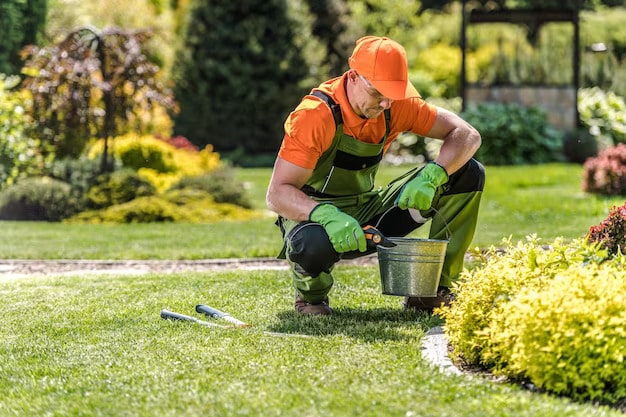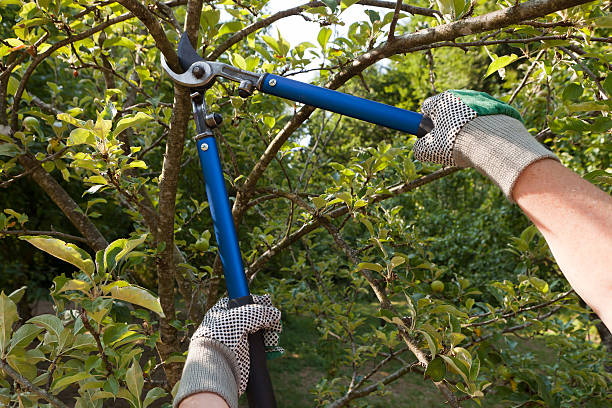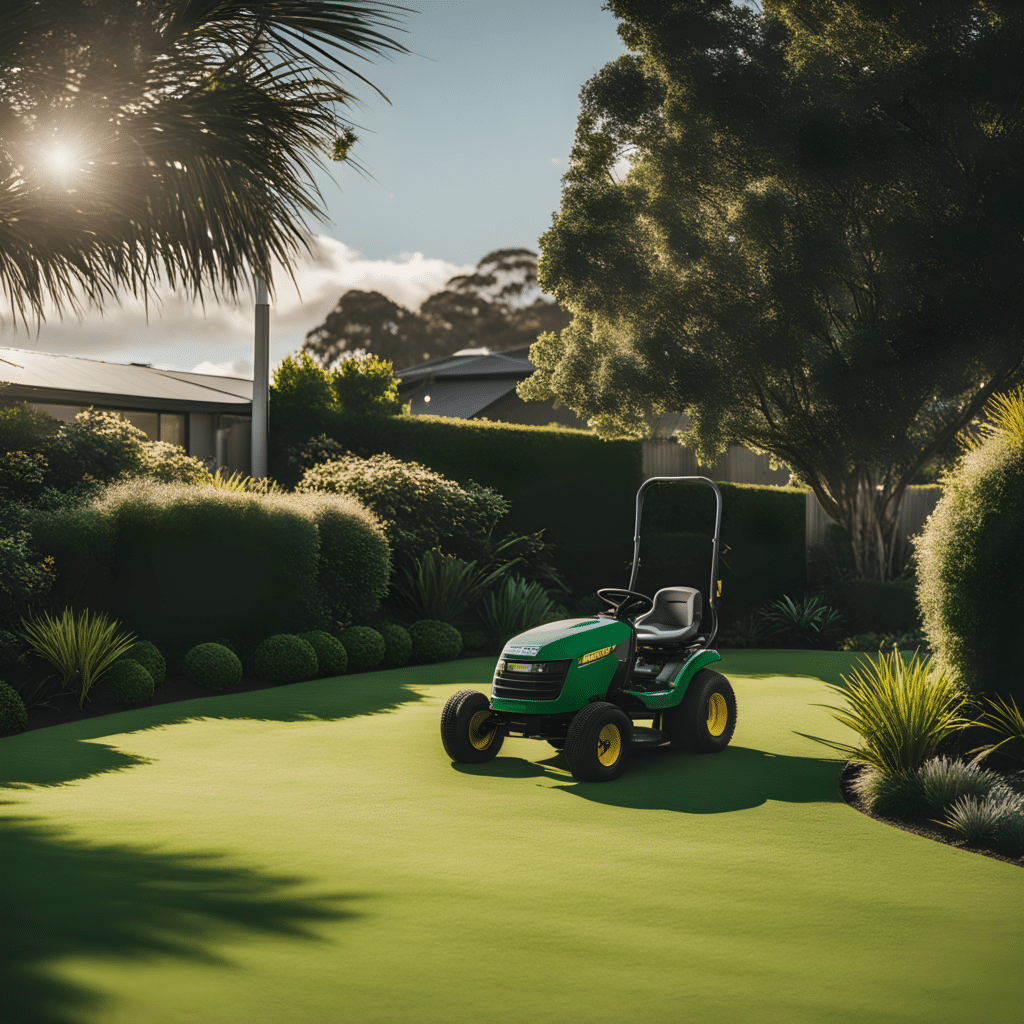Nowadays, more and more people are discovering the allure of Commercial Gardening and lawn services, a journey that can transform a simple hobby into a profitable business venture. Whether you have a green thumb or simply a passion for plants, venturing into the world of commercial gardening offers a unique opportunity to combine your love for gardening with entrepreneurial ambitions. In this article, we will delve into the various aspects of commercial gardening, from understanding the landscape to cultivating success, from setting up your garden to overcoming challenges, and everything in between. So, get ready to explore the world of commercial gardening and discover how you can turn your love for plants into a thriving and profitable business!
Table of Contents
Understanding the Landscape of Commercial Gardening and lawn services

Defining commercial gardening
Commercial gardening, also known as market gardening or horticulture, refers to the practice of growing and selling plants, flowers, or crops for profit. Unlike traditional gardening, which is typically done on a smaller scale for personal enjoyment, commercial gardening involves a larger-scale operation that focuses on meeting market demands and generating revenue. By transitioning from a hobbyist to a commercial gardener, individuals can tap into a wide range of market potential and opportunities.
Exploring the market potential and opportunities
The market for commercial gardening is vast and offers a plethora of opportunities for those willing to take the leap. From supplying fresh produce to restaurants and farmers markets to offering landscaping services for residential and commercial properties, the possibilities are virtually endless. In addition, there is an increasing demand for sustainably grown and organic products, providing further opportunities for commercial gardeners to cater to a niche market. By understanding the market potential and identifying the right opportunities, aspiring entrepreneurs can carve out a profitable niche in the commercial gardening industry. First, You have to learn about Commercial Gardening Services from different media and blog posts.
Overcoming challenges and misconceptions
While commercial gardening can be a highly rewarding and profitable venture, it is not without its fair share of challenges and misconceptions. One common misconception is that commercial gardening requires a large plot of land or an extensive infrastructure. However, with careful planning and targeted approaches, it is possible to start small and gradually expand the business. Moreover, challenges such as weather conditions, pests, and diseases can pose hurdles to commercial gardeners. However, with proper knowledge, proactive pest control strategies, and seeking professional advice when needed, these challenges can be overcome. By addressing these misconceptions and being prepared to face the challenges, aspiring commercial gardeners can set themselves up for success. You can try our best Gardening Services in Tauranga.
Laying the Groundwork: Planning and Preparation
Assessing your passion and expertise
Before diving headfirst into commercial gardening, it is essential to assess your passion and expertise in the field. Ask yourself why you are drawn to commercial gardening and whether you have the necessary knowledge and skills to succeed. Passion will be the driving force behind your business, while expertise will ensure that you can deliver high-quality products and services. If you feel confident in your passion and expertise, then you are ready to take the next steps towards becoming a successful commercial gardener.
Defining your target market and niche
To thrive in the world of commercial gardening, it is crucial to define your target market and niche. Consider who your ideal customers are, what their needs and preferences are, and how you can fulfill those needs with your products or services. This will help you tailor your offerings to a specific audience and stand out in a crowded market. Whether you choose to focus on growing exotic plants, supplying fresh produce to local restaurants, or providing sustainable landscaping services, identifying your target market and niche will be the key to your success.
Conducting market research and feasibility analysis
Once you have defined your target market and niche, it is time to conduct thorough market research and feasibility analysis. This step is crucial in determining the viability and potential profitability of your commercial gardening venture. Research the demand for your products or services, analyze competitor offerings, and assess the current market trends. Additionally, consider the financial aspects of your business, including start-up costs, ongoing expenses, and potential revenue streams. By conducting comprehensive market research and feasibility analysis, you can make informed decisions and set realistic goals for your commercial gardening business.
Setting up the Garden: Necessary Tools and Resources
Investing in quality gardening equipment
Investing in quality gardening equipment is essential for the success of your commercial gardening business. While it may be tempting to opt for cheaper alternatives, investing in high-quality tools will save you time and money in the long run. From durable hand tools to efficient irrigation systems, having the right equipment will enable you to work more effectively and efficiently. Additionally, consider investing in specialized tools or machinery that can help streamline your operations, such as seeders, transplanters, or greenhouse automation systems.
Selecting the ideal location for commercial gardening
The location of your commercial garden plays a significant role in its success. Consider factors such as access to sunlight, availability of water sources, soil quality, proximity to your target market, and local zoning regulations. Analyze the unique requirements of the plants or crops you plan to grow and choose a location that meets those needs. For example, if you plan to grow delicate flowers or tropical plants, you may need a greenhouse or a controlled environment. By selecting the ideal location for your commercial garden, you can provide optimal conditions for your plants and maximize your chances of success.
Securing necessary permits and licenses
Before you can start your commercial gardening business, it is crucial to secure any necessary permits and licenses. Depending on your location and the nature of your business, you may need permits for land use, water rights, pesticide application, or selling agricultural products. Research the legal requirements and regulations in your area and ensure that you comply with all necessary permits and licenses. By starting your business on the right foot and operating within the legal framework, you can avoid potential issues and establish a trustworthy reputation.
Cultivating Success: Essential Skills for Commercial Gardeners
Mastering horticultural principles and techniques
As a commercial gardener, it is essential to have a solid foundation in horticultural principles and techniques. Mastering the art of plant propagation, soil management, pest control, and crop nutrition will be instrumental in producing high-quality and healthy plants or crops. Stay updated with the latest research and advancements in horticulture and continuously expand your knowledge and skills. Consider attending workshops, courses, or even pursuing certifications in horticulture to enhance your expertise. By mastering horticultural principles and techniques, you can provide exceptional products and services to your customers.
Understanding pesticide and fertilizer regulations
When it comes to commercial gardening, understanding pesticide and fertilizer regulations is of utmost importance. Different regions have varying regulations concerning the use of pesticides and fertilizers, including restrictions on certain chemicals and application methods. Familiarize yourself with these regulations and ensure that you comply with all relevant laws to protect the environment and the health of consumers. Additionally, explore organic gardening practices and sustainable alternatives to reduce reliance on conventional pesticides and fertilizers. By adhering to pesticide and fertilizer regulations, you can cultivate a reputation for environmentally friendly and safe practices.
Implementing sustainable practices and organic gardening
In today’s environmentally conscious world, implementing sustainable practices and embracing organic gardening can be a significant advantage for commercial gardeners. Consumers are increasingly seeking out eco-friendly products and services, and commercial gardeners who prioritize sustainability can tap into this growing market. Explore practices such as composting, water conservation, integrated pest management (IPM), and utilizing organic fertilizers for a more sustainable approach to gardening. By implementing sustainable practices and focusing on organic gardening, you can differentiate yourself from competitors and attract environmentally conscious customers.
Gardening for Profit: Plant Selection and Crop Planning
Evaluating high-demand plants and crops
Selecting the right plants and crops is crucial in maximizing your profitability as a commercial gardener. Evaluate the demand for various plants and crops in your target market and focus on those that have a high demand and are likely to generate substantial sales. Consider factors such as seasonal demand, local trends, and future growth projections. Conduct market research, talk to potential customers, and analyze competitor offerings to gain insights into the market demand for different plants or crops. By evaluating high-demand plants and crops, you can make informed decisions and optimize your profitability.
Maximizing yield through crop rotation and companion planting
To maximize your yield and optimize land usage, consider implementing crop rotation and companion planting techniques. Crop rotation involves systematically changing the crops grown in a particular area to improve soil fertility, manage pests and diseases, and reduce reliance on synthetic inputs. Companion planting, on the other hand, involves growing compatible plants together to enhance growth, repel pests, and provide mutual benefits. By incorporating these techniques into your commercial gardening practices, you can increase productivity, reduce pest and disease pressure, and ensure the long-term viability of your business.
Identifying seasonal opportunities for increased profit
Seasonality plays a significant role in the commercial gardening industry, and identifying seasonal opportunities can lead to increased profitability. Understanding the seasonal demand for specific plants or crops and tailoring your offerings accordingly can help you capitalize on market trends and generate higher sales. For example, focusing on holiday-themed plants or offering seasonal produce during peak harvesting periods can attract customers looking for specialty items. By identifying seasonal opportunities and adjusting your crop planning, you can maximize your profits and meet the changing needs of your customers throughout the year.
Growing Beyond the Soil: Specialized Garden Techniques
Embracing hydroponics and vertical gardening
As technology advances, commercial gardeners have more options than ever when it comes to growing beyond the traditional soil-based methods. Hydroponics, for example, is a soil-less cultivation technique that involves growing plants in nutrient-rich water solutions. This technique offers numerous advantages, including efficient use of water and space, faster growth rates, and greater control over plant nutrition. Vertical gardening is another specialized technique that allows you to grow plants vertically on structures such as walls or trellises, saving valuable space in urban environments. By embracing these specialized garden techniques, you can overcome space limitations and optimize your productivity.
Discovering the potential of greenhouse cultivation
Greenhouse cultivation is a game-changer for commercial gardeners, providing a controlled environment that extends the growing season and protects plants from adverse weather conditions. By harnessing the power of greenhouse cultivation, you can grow high-value crops year-round, cater to niche markets, and increase your revenue streams. Additionally, greenhouse cultivation allows for precise control over temperature, humidity, and light, enabling you to grow a wider variety of plants and meet specific market demands. Explore the different types of greenhouse structures, such as hoop houses or polytunnels, and consider incorporating greenhouse cultivation into your commercial gardening operations.
Utilizing technology for efficient gardening practices
In today’s digital age, technology plays a vital role in improving efficiency and productivity in commercial gardening. From automated irrigation systems to remote monitoring and control, utilizing technology can streamline your gardening practices and free up time for other aspects of your business. Consider investing in smart sensors that monitor soil moisture levels, weather conditions, or smart irrigation controllers that regulate water usage. Additionally, explore gardening apps or software that can help with record-keeping, inventory management, and even market research. By leveraging technology, you can make your gardening practices more efficient and stay ahead of the competition.
Harvesting Opportunities: Strategies for Marketing and Sales
Developing a strong brand identity and image
Building a strong brand identity and image is crucial in attracting customers and differentiating yourself from competitors in the commercial gardening industry. Develop a compelling brand story and mission statement that resonates with your target audience. Consider factors such as your brand name, logo, color palette, and overall visual identity that reflect your values and the unique aspects of your business. Additionally, be consistent in your brand messaging across all marketing channels, from your website and social media presence to your packaging and promotional materials. By developing a strong brand identity and image, you can build trust with customers and establish a recognizable presence in the market.
Creating effective marketing campaigns
Effective marketing campaigns are essential for increasing awareness, attracting new customers, and generating sales in the commercial gardening industry. Begin by identifying the most appropriate marketing channels for reaching your target audience, such as social media platforms, local advertising, or collaboration with local businesses. Craft compelling and informative content that showcases your expertise, highlights the benefits of your products or services, and engages your audience. Utilize captivating visuals, such as high-quality images or videos, to draw attention and tell your brand story. Consider offering promotional discounts, organizing contests, or sponsoring local events to create buzz around your business. By creating effective marketing campaigns, you can generate interest and excitement, ultimately leading to increased sales and revenue.
Establishing customer relationships and retention strategies
Building strong customer relationships and implementing retention strategies are vital for long-term success in the commercial gardening industry. Focus on providing exceptional customer service and personalized experiences, such as offering gardening tips or consultations, to build trust and loyalty with your customers. Implement a customer relationship management (CRM) system to track customer interactions, preferences, and purchase history, allowing you to tailor your offerings and communication to their specific needs. Moreover, consider launching a loyalty program or offering exclusive discounts to encourage repeat business. By nurturing customer relationships and implementing retention strategies, you can create a loyal customer base that will support your business for years to come.
The Business Side of Gardening: Financial and Operational Considerations
Crafting a comprehensive business plan and budget
Just like any other business, commercial gardening requires a comprehensive business plan and budget to ensure financial success. Craft a detailed business plan that outlines your goals, target market, competitive analysis, marketing strategies, and financial projections. Consider factors such as start-up costs, ongoing expenses, pricing strategies, and potential revenue streams. Additionally, create a realistic budget that encompasses all aspects of your business, including equipment, supplies, utilities, marketing, and personnel costs. Regularly review and update your business plan and budget as your business evolves to stay on track and adapt to changing circumstances.
Managing expenses and maximizing revenue
Managing expenses and maximizing revenue are essential for maintaining profitability in the commercial gardening industry. Keep a close eye on your expenses and look for opportunities to reduce costs without sacrificing the quality of your products or services. Consider buying supplies in bulk, exploring partnerships or collaborations with other businesses to share expenses, or finding creative ways to repurpose or recycle materials. At the same time, focus on maximizing revenue by diversifying your product offerings, exploring new markets, or upselling to existing customers. Regularly analyze your financial data, identify areas for improvement, and implement strategies to optimize your expenses and revenue.
Implementing efficient operational processes
Efficient operational processes are crucial for streamlining your commercial gardening business and increasing productivity. Analyze your workflows and identify areas where you can automate or improve efficiency. Consider implementing standardized procedures for tasks such as planting, harvesting, or packaging to ensure consistency and reduce errors. Explore software or mobile apps that can help with inventory management, scheduling, or record-keeping. Additionally, invest in employee training and development to enhance their skills and productivity. By implementing efficient operational processes, you can save time, reduce costs, and improve overall business performance.
Expanding Your Business: Scaling up and Diversification
Evaluating opportunities for expansion
As your commercial gardening business grows and becomes profitable, you may start considering opportunities for expansion. Evaluate potential growth areas within your market, such as offering additional products or services, expanding into new geographic regions, or targeting new customer segments.






